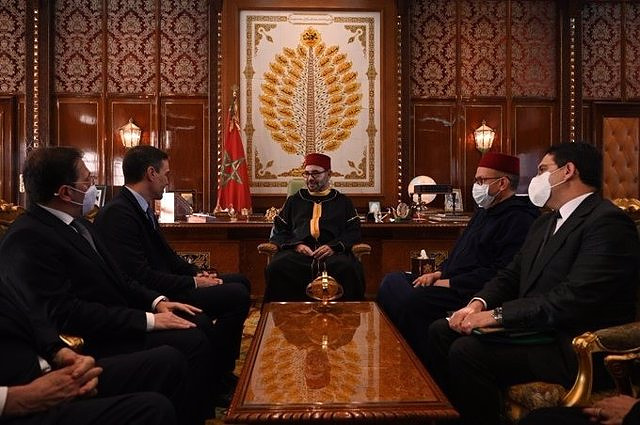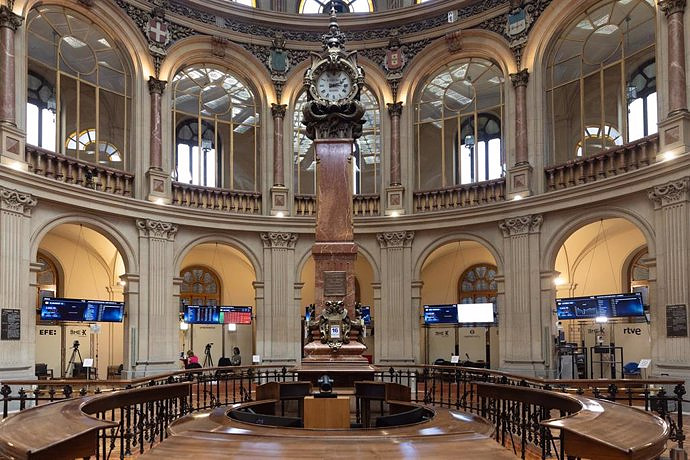The 'road map' sealed by Sánchez and Mohamed VI has brought more trade and fewer immigrant arrivals
MADRID, 28 Ene. (EUROPA PRESS) -
The summit between Spain and Morocco on February 1 and 2 in Rabat will come to certify the new stage in the bilateral relationship that began with the meeting on April 7 on the occasion of the meeting between the Prime Minister, Pedro Sánchez, and King Mohamed VI, the result of the change in position regarding the Sahara.
That meeting made it possible to leave behind one of the most serious crises in the relationship between the two countries, under the excuse of welcoming the leader of the Polisario Front, Brahim Ghali, and whose real reason was the Spanish position regarding the Sahara.
With his March letter to the Alaouite monarch, in which Sánchez maintained that the 2007 Moroccan autonomy plan for the Sahara was "the most solid, credible and realistic basis" for resolving the conflict, the president achieved the thaw, in exchange for unite against him both the PP and its coalition and legislature partners, who saw in the decision a historic turn that broke with the traditional support for self-determination of the Saharawis through the holding of a referendum.
The summit, which is expected to be attended by a dozen ministers, will make it possible to stage the current good relationship, especially considering that there has not been a High Level Meeting (RAN) since 2015.
The one scheduled for December 2020 was postponed at the last moment, on the grounds of the pandemic, when what was really in the background was the Moroccan discontent over the Spanish position regarding the Sahara after the then US president, Donald Trump, recognize Moroccan sovereignty over the former colony.
According to the joint declaration of April 7, the appointment should have taken place before the end of 2022, but both governments justified the difficulty of balancing the agendas of so many ministers to schedule it at the beginning of 2023.
One of the main objectives will be to review the progress made in the objectives set out in this 'road map'. Precisely, one of the first points of the joint declaration provided that "the full normalization of the movement of people and goods will be restored in an orderly manner, including the appropriate customs and people control devices at the land and sea level."
In this sense, Sánchez announced that same day that Morocco had accepted the reopening of the Melilla customs, closed unilaterally by Rabat in 2018, and the opening of a new one in Ceuta, where it had never existed.
After some initial skepticism, the foreign ministers of the two countries, José Manuel Albares and Naser Burita, announced at the end of November that the opening would take place before the summit. Finally, this Friday the test for its opening in the experimental phase was successfully carried out, waiting for a schedule to be set at the summit that allows trade to be resumed "with all the guarantees".
They also reopened in phases the land borders between the two autonomous cities and Morocco. On May 17 only for citizens of the European Union and with permission to circulate in Schengen territory and from May 31 for "legally recognized cross-border workers".
The situation for the rest of Moroccans remains to be seen or if the visa exemption enjoyed by residents in the provinces of Nador and Tetouan, bordering the two autonomous cities, is restored.
Likewise, maritime traffic between the two countries was resumed almost immediately and a new Strait Pass operation was organized, after two years without it being able to be carried out mainly due to the pandemic but also due to the diplomatic crisis. In total, during the three months a total of 2,912,283 passengers and 695,487 vehicles were mobilized between the two countries.
On the other hand, both governments promised in April to relaunch and reform cooperation in the field of migration, resuming the meetings of the Spanish-Moroccan Permanent Group on Migration. This has been one of the areas in which the new bilateral relationship seems to have reaped better results, with a reduction in arrivals from Morocco, something that the Spanish Executive has made an effort to highlight in recent months.
This was precisely one of the arguments used by Sánchez last Tuesday in the Congress of Deputies to claim the strategic importance of having a good relationship with the Alaouite kingdom. According to the president, who cited data from the Ministry of the Interior, the reduction has been 26%, while according to Frontex the reduction in arrivals to Andalusia was 21% and to the Canary Islands 31%. "Of all the migratory routes to Europe, the only one that has decreased is that from Morocco to Spain," he claimed.
On the other hand, Madrid and Rabat promised to reactivate "sectoral cooperation in all areas of common interest: economic, commercial, energy, industrial and cultural, among others". On the economic level, Sánchez highlighted precisely that trade increased by 33% in 2022 and that it reached almost 10,000 million.
On the energy front, Spain began sending gas to Morocco last June through the Maghreb-Europe gas pipeline, closed unilaterally by Algeria in November 2021 after breaking off diplomatic relations with Rabat in August of that year.
By virtue of an agreement between the two governments, the neighboring country will regasify liquefied natural gas at facilities in Spain and this will be sent back through the aforementioned gas pipeline through which Algerian gas previously reached the Iberian Peninsula.
Likewise, it was agreed to reactivate the working group on the delimitation of maritime spaces on the Atlantic coast, which had not met for fifteen years, "with the aim of achieving concrete progress." During this time, at least two meetings have been held on June 29 and September 11, without any results being disclosed.
This working group is of special interest to the Canary Islands, whose Government has asked to be present at its meetings, given Morocco's plans to carry out oil prospecting in waters close to the archipelago and also because the Alaouite kingdom approved laws delimiting its waters that clash with those of Spain.
At the beginning of 2020, Morocco approved two laws by which it proceeded to delimit its territorial sea up to 12 nautical miles and the exclusive economic zone (ZEE) of 200 nautical miles, as well as its continental shelf, "up to the outer edge of the continental margin or up to 200 miles". Both texts collide with the delimitation of Spanish waters in the Canary Islands, although they have not yet entered into force.
On the other hand, in the declaration of April 7, Spain and Morocco put black on white that "issues of common interest will be dealt with in a spirit of trust, through consultation, without resorting to unilateral acts or fait accompli."
This did not prevent a diplomatic clash from taking place in October, after learning of a letter that Rabat had sent to the UN Human Rights Council in which he argued that "the Kingdom of Morocco does not have land borders with Spain and Melilla continues to be a occupied prison and for this reason, one cannot speak of borders, but of simple points of passage".
The Moroccan government was forced to come out of the way, qualifying the content of the document, after Sánchez defended emphatically before the Congress of Deputies after learning of the letter that "Ceuta and Melilla are Spain, period".

 Exploring Cardano: Inner Workings and Advantages of this Cryptocurrency
Exploring Cardano: Inner Workings and Advantages of this Cryptocurrency Seville.- Economy.- Innova.- STSA inaugurates its new painting and sealing hangar in San Pablo, for 18 million
Seville.- Economy.- Innova.- STSA inaugurates its new painting and sealing hangar in San Pablo, for 18 million Innova.- More than 300 volunteers join the Andalucía Compromiso Digital network in one month to facilitate access to ICT
Innova.- More than 300 volunteers join the Andalucía Compromiso Digital network in one month to facilitate access to ICT Innova.-AMP.- Ayesa acquires 51% of Sadiel, which will create new technological engineering products and expand markets
Innova.-AMP.- Ayesa acquires 51% of Sadiel, which will create new technological engineering products and expand markets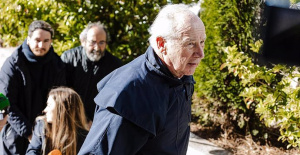 The Prosecutor's Office requests 63 years in prison for Rato and a fine of more than 42 million euros
The Prosecutor's Office requests 63 years in prison for Rato and a fine of more than 42 million euros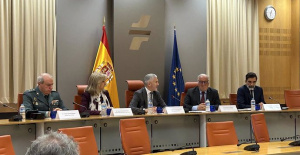 Marlaska puts more radars, surveillance on highways and motorists, and controls in the face of the increase in accidents
Marlaska puts more radars, surveillance on highways and motorists, and controls in the face of the increase in accidents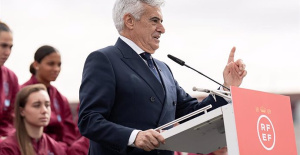 Pedro Rocha, elected new president of the RFEF
Pedro Rocha, elected new president of the RFEF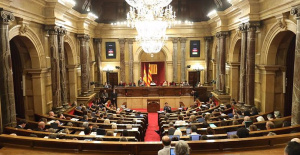 The PSC would win the elections with 40-47 seats and ERC is ahead of Junts, according to the CEO
The PSC would win the elections with 40-47 seats and ERC is ahead of Junts, according to the CEO How Blockchain in being used to shape the future
How Blockchain in being used to shape the future Not just BTC and ETH: Here Are Some More Interesting Coins Worth Focusing on
Not just BTC and ETH: Here Are Some More Interesting Coins Worth Focusing on The UA opens the call for the Impulso 2024 Awards for the best innovative business initiatives
The UA opens the call for the Impulso 2024 Awards for the best innovative business initiatives ALI, virtual assistant from Alicante, internationally recognized by the OECD
ALI, virtual assistant from Alicante, internationally recognized by the OECD Retrópolis brings the golden age of video games and computing to the UPV
Retrópolis brings the golden age of video games and computing to the UPV Looking for video games that value the neighborhoods of Valencia
Looking for video games that value the neighborhoods of Valencia A million people demonstrate in France against Macron's pension reform
A million people demonstrate in France against Macron's pension reform Russia launches several missiles against "critical infrastructure" in the city of Zaporizhia
Russia launches several missiles against "critical infrastructure" in the city of Zaporizhia A "procession" remembers the dead of the Calabria shipwreck as bodies continue to wash up on the shore
A "procession" remembers the dead of the Calabria shipwreck as bodies continue to wash up on the shore Prison sentences handed down for three prominent Hong Kong pro-democracy activists
Prison sentences handed down for three prominent Hong Kong pro-democracy activists ETH continues to leave trading platforms, Ethereum balance on exchanges lowest in 3 years
ETH continues to leave trading platforms, Ethereum balance on exchanges lowest in 3 years Investors invest $450 million in Consensys, Ethereum incubator now valued at $7 billion
Investors invest $450 million in Consensys, Ethereum incubator now valued at $7 billion Alchemy Integrates Ethereum L2 Product Starknet to Enhance Web3 Scalability at a Price 100x Lower Than L1 Fees
Alchemy Integrates Ethereum L2 Product Starknet to Enhance Web3 Scalability at a Price 100x Lower Than L1 Fees Mining Report: Bitcoin's Electricity Consumption Declines by 25% in Q1 2022
Mining Report: Bitcoin's Electricity Consumption Declines by 25% in Q1 2022 Oil-to-Bitcoin Mining Firm Crusoe Energy Systems Raised $505 Million
Oil-to-Bitcoin Mining Firm Crusoe Energy Systems Raised $505 Million Microbt reveals the latest Bitcoin mining rigs -- Machines produce up to 126 TH/s with custom 5nm chip design
Microbt reveals the latest Bitcoin mining rigs -- Machines produce up to 126 TH/s with custom 5nm chip design Bitcoin's Mining Difficulty Hits a Lifetime High, With More Than 90% of BTC Supply Issued
Bitcoin's Mining Difficulty Hits a Lifetime High, With More Than 90% of BTC Supply Issued The Biggest Movers are Near, EOS, and RUNE during Friday's Selloff
The Biggest Movers are Near, EOS, and RUNE during Friday's Selloff Global Markets Spooked by a Hawkish Fed and Covid, Stocks and Crypto Gain After Musk Buys Twitter
Global Markets Spooked by a Hawkish Fed and Covid, Stocks and Crypto Gain After Musk Buys Twitter Bitso to offset carbon emissions from the Trading Platform's ERC20, ETH, and BTC Transactions
Bitso to offset carbon emissions from the Trading Platform's ERC20, ETH, and BTC Transactions Draftkings Announces 2022 College Hoops NFT Selection for March Madness
Draftkings Announces 2022 College Hoops NFT Selection for March Madness